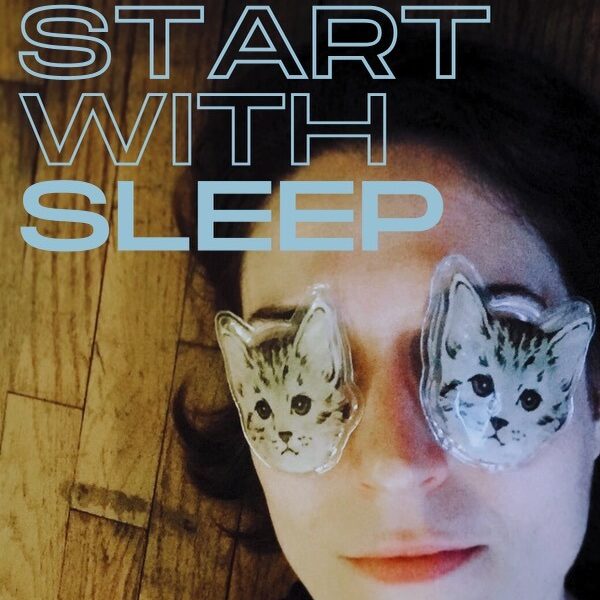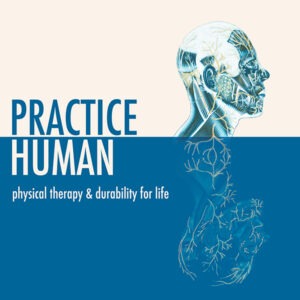
As we transition into fall in the Northern Hemisphere, sleep patterns can become disrupted. The change of season brings a whirlwind of schedule changes, new activities, and the potential for feelings of ungroundedness energetically.
How have you been sleeping lately?
There’s a lot of noise in the wellness community about biohacking your way to optimal fitness and longevity. How about starting with a good night’s sleep?
If you’re not getting high quality sleep on a regular basis, all the fine-tuned workout programming, wearable fitness tracker insights, dietary supplementation, and light viewing/blocking habits in the world will probably give you close to zero appreciable improvement.
I read Matthew Walker’s Why We Sleep a couple years back. It’s excellent. Along with other digging into research and writing on the topic, my world has been rocked by daily observation of my own body, mood, and mind in relation to sleep quality.
As a physical therapist and pain science enthusiast, I feel that sleep quality (and the reasons for someone’s good vs. poor sleep) is an extremely important consideration in rehab prognosis. It’s an enormous lifestyle factor that can bolster or break down all other efforts toward healing.
I’ve personally experienced minor pain flare-ups in nearly every part of my body at some time or another following an exceptionally poor night of sleep. Or even worse, several consecutive nights of fair-at-best sleep sessions.
I’ve recovered just as quickly from minor injuries, largely due to prioritizing sleep quality. Exercise and sleep are best friends. Robust exercise can enhance sleep quality AND good quality sleep makes robust exercise more sustainable.
It’s powerful stuff, sleep.
And we all know nothing improves sleep quality like obsessing over sleep quality! JK!
Really though, there are a lot of different levers one can pull to gain a locus of control over sleep quality and quantity. Some are pretty low key, easy to implement, and effective enough.
I’m about to provide you with a list of factors I focus my attention on most of the time. They are all based around metabolism, or the body’s ability to break down, integrate… digest, if you will… the things we consume.
Sleep helps us “digest” on many levels. New learning is committed to long term memory, while old information that’s deemed superfluous is cleared away. Increased duration of REM sleep makes problem solving and creative thought more accessible and efficient. For emotional stability, physical well-being, pain relief, and injury mitigation, the body heals in sleep: Sleep clears away debris, rebuilds tissue, calms and restores neural pathways.
If you’re keen on improving your sleep quality, I urge you to focus on just one of the factors listed below at a time. Making big sweeping changes all at once will probably leave you feeling overwhelmed and even more ungrounded. Over time, I’ve layered all of these for maximum benefit. Know that a little shift in just one of these can provide appreciable changes to sleep quality and the benefits that follow.
1. Your last meal of the day. Eat earlier and lighter.
Indigestion is no friend to sleep. I think you probably know this from experience. Go to bed more empty than full. This includes limiting fluid intake in the last hours before bed and brings me to my next point…
2. Avoid alcohol consumption in the evening.
This was the most eye opening factor for me, a home cook who used to enjoy sipping a glass of wine every night while preparing dinner. I cut it out completely and had no idea the benefits it would bring to my sleep quality and general well-being during waking hours.
Some folks think alcohol helps them fall asleep easier, and sleep more deeply. This is untrue. The by-products of alcohol metabolism wreak havoc on our sleep cycles, and do so for many hours of the night after consuming just one beverage.
Alcohol is a powerful suppressor of REM sleep, and one of the reasons we experience a foggy inability to concentrate the next day.
3. Avoid caffeine later in the day.
“Caffeine has an average half-life of five to seven hours. Let’s say that you have a cup of coffee after your evening dinner, around 7:30 p.m. This means that by 1:30 a.m., 50 percent of that caffeine may still be active and circulating throughout your brain tissue. In other words, by 1:30 a.m., you’re only halfway to completing the job of cleansing your brain of the caffeine you drank after dinner.”
— Walker, Matthew. Why We Sleep: Unlocking the Power of Sleep and Dreams (p. 27).
I LOVE a cup of coffee in the morning. I love it so much, I get excited to go to sleep at night because I know I’m one step closer to waking up and enjoying a cup of coffee. But that’s where it ends for me. One cup. In the morning.
4. Keep your sleeping space cold, dark, and quiet.
As cold as possible, fewer blankets, blackout curtains, sleep mask, earplugs. Anything and everything from this list. Good for sleep.
5. Exercise every day. Not too close to bedtime.
30-40 minutes of light to moderate cyclical (cardio based) movement every day. More robust workouts for 20-30 minutes 2-3 times a week. Basic rule of thumb… do what works for you!
There are other strategies I could list. These are the ones that have served me the biggest personal bang for my buck. They are also the factors that fall squarely within my scope of practice as a physical therapist. If you’re experiencing random flare-ups in pain and seeking relief, or trying to heal an injury that’s taking longer than it should, start with quality sleep.
I’m here if you want to chat about this further. Send us an email to hello@practicehuman.com. I’d love to connect and hear more about what you’re working on.

Leave a Reply